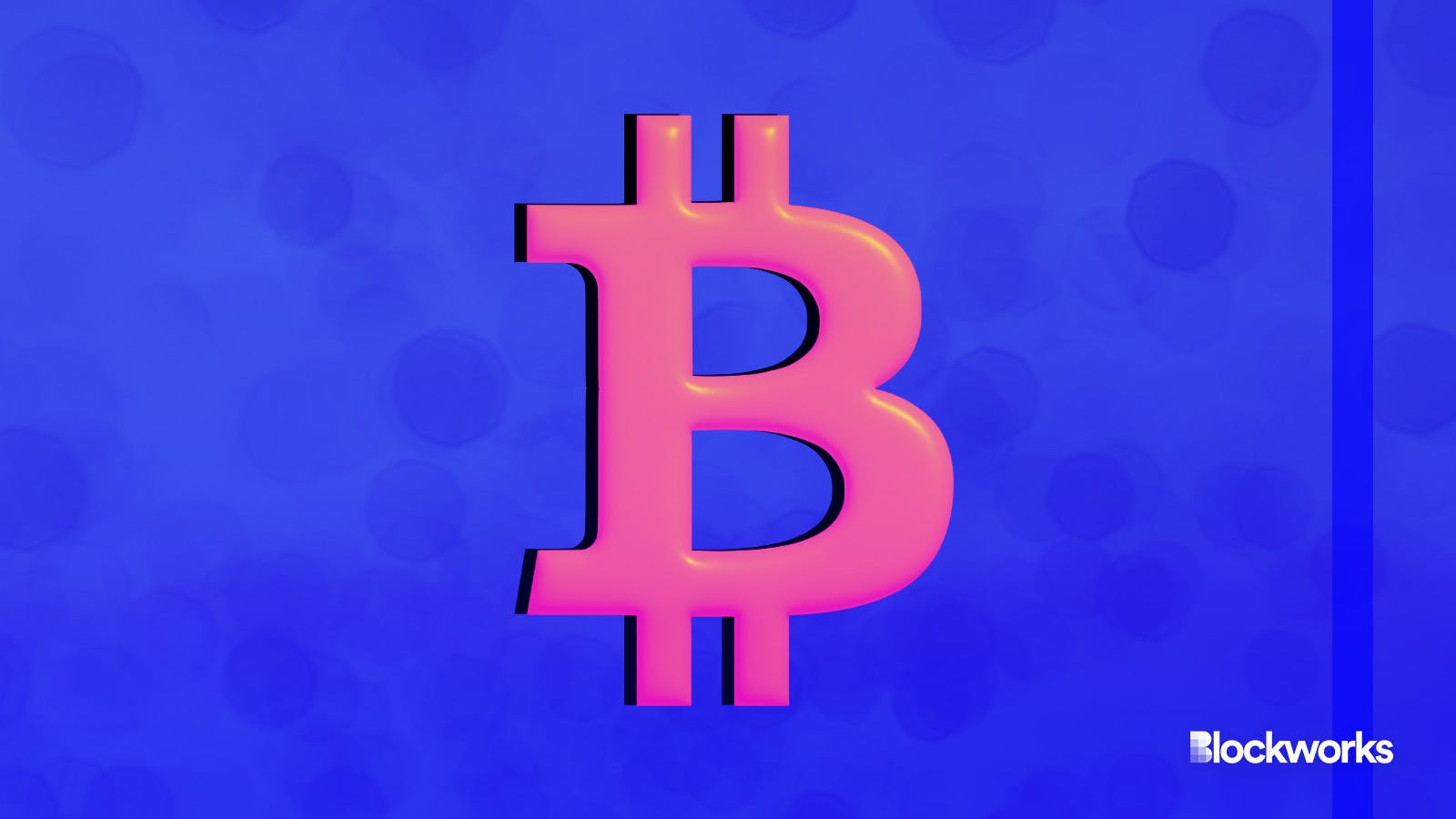Is it too soon to name BlackRock the bitcoin ETF segment winner?
The iShares Bitcoin Trust saw about 40% of the 10-fund category’s trading volumes last week, hitting $10 billion in assets under management

hendra hfx and Adobe Stock modified by Blockworks
BlackRock is asserting itself over competitors in the closely watched bitcoin ETF battle following a standout week of inflows and trading volumes.
While a number of segment offerings have had successful launches, industry watchers told Blockworks that the asset management giant might be building a lead it won’t ever relinquish.
BlackRock’s iShares Bitcoin Trust (IBIT) has crossed the $10 billion assets under management mark after seven weeks of trading. No other ETF in history has reached such an asset level that quickly.
Read more: Restricting access to growing bitcoin ETFs becoming ‘hard to justify’
Fidelity Investments’ Wise Origin Bitcoin Fund (FBTC) closed out last week with assets amounting to roughly $6.5 billion.
The next-highest funds, in terms of assets under management, are the Ark 21Shares Bitcoin ETF (ARKB) and the Bitwise Bitcoin ETF (BITB) — with nearly $2.2 billion and $1.6 billion, respectively.
Though the $27 billion or so assets within Grayscale’s Bitcoin Trust ETF (GBTC) leads the segment, industry watchers have said they expect the persistent outflows from that higher-priced fund to continue.
“I think we can safely declare BlackRock the winner out of the nine new spot bitcoin ETF entrants,” said Nate Geraci, president of the ETF Store.
Unlike its nine US spot bitcoin ETF competitors, GBTC ported over its large asset base — gathered over years as a trust with shares quoted on OTC Markets — upon converting to an ETF on Jan. 11. The fund has endured net outflows of about $8.9 billion since that time.
Fidelity may have hard time catching BlackRock
Sumit Roy, a senior analyst at ETF.com, said in January that the asset race between BlackRock and Fidelity was “a heavyweight fight that can go either way.” The firms benefit from their large and well-established distribution networks, analysts previously told Blockworks — particularly when it comes to the financial adviser channel.
But IBIT’s quick emergence as a “frontrunner” is making it increasingly hard for FBTC to bridge the gap, said Neena Mishra, director of ETF research at Zacks Investment Research.
In 35 trading days, IBIT has tallied higher net inflows than FBTC 25 times, a Blockworks review of BitMEX Research data found.
During a record net inflow week for bitcoin ETFs from Feb. 12 to Feb. 16 — IBIT and FBTC brought in $1.6 billion and $650 million, respectively. On Feb. 28, when net inflows into the segment hit an all-time daily high amid a BTC price rally, $612 million went to the BlackRock fund, while $245 million flowed into Fidelity’s offering.
In terms of volumes, the BlackRock bitcoin ETF notched about $3.3 billion in trade volumes on Feb. 28 — more than 40% of the 10-fund segment’s $7.6 billion for the day. Investors traded about $1.8 billion worth of GBTC shares that day, while FBTC’s trade volumes totaled $1.4 billion.
IBIT’s $9 billion worth of trading volumes last week also amounting to about 40% of the category’s $22 billion of total volumes over that span.
Read more: Bitcoin ETF snapshot: Record volumes lead to second-best weekly inflows
The BlackRock fund’s trade volumes were nearly $1.8 billion as of 2 pm ET on Monday. It was the sixth straight trading day that IBIT reached at least $1.2 billion, and its third-highest daily total since launching on Jan. 11.
GBTC and FBTC had notched Monday trade volumes of about $1 billion and $755 million, respectively, at that time.
“IBIT has already started trading in large volumes and could soon become the liquidity leader in the space,” Mishra told Blockworks. “ETF liquidity is particularly important for institutional investors and traders, as it reduces transaction costs and provides more execution strategy options.”
Success typically begets success in the ETF space, said Nate Geraci, president of The ETF Store.
“BlackRock’s current leadership in net inflows and trading volume will only serve to bolster its standing at the top,” Geraci told Blockworks. “Every day that goes by with BlackRock leading in flows and trading volume makes it that much more difficult for competitors to dislodge them.”
Still, it appears there is plenty of room for multiple competitors in the bitcoin ETF segment, given that five such funds have more than $1.5 billion in assets. And another wave of inflows, expected when more wirehouses and wealth managers unlock access to the funds, could shake up the leaderboard.
“Even if an issuer is unlikely to surpass BlackRock, they can still carve out a pretty nice niche in this category,” Geraci added.
IBIT still chasing GBTC’s asset level
The ETF Store president said he believes the more interesting question is whether BlackRock’s bitcoin ETF will surpass GBTC in assets.
Read more: As GBTC outflows continue, will the largest bitcoin ETF be dethroned?
Grayscale executives have sought to justify GBTC’s significantly higher 1.5% fee by touting the fund’s liquidity, tight spreads and decade-long track record.
Though GBTC dominated bitcoin ETF trade volumes in its first few weeks, BlackRock’s offering edged the Grayscale fund in that category on Feb. 1 and has repeatedly held a volumes lead over its rival.
“Unless Grayscale lowers the fee on GBTC, I think it’s simply a matter of time,” Geraci said of IBIT becoming the bitcoin ETF asset leader. “Perhaps sooner, rather than later given what we’ve seen over the first seven weeks of trading.”
Get the news in your inbox. Explore Blockworks newsletters:
- The Breakdown: Decoding crypto and the markets. Daily.
- 0xResearch: Alpha in your inbox. Think like an analyst.






